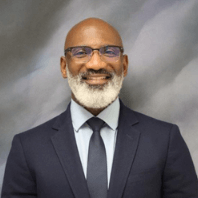Professional Development
for Teachers
Every day is a good day to learn.

If you’re ready to learn and grow as an educator, you’re in the right place.
Whether you are an individual teacher looking for courses or a school or district leader looking for instructional coaching tools or customizable professional development, we have a solution to support your needs.
Teaching Channel is Here To Be Your Education Ally
Individual Teachers
200,000+ individual teachers from across the country have looked to Teaching Channel to fulfill their license renewal and salary advancement needs. Be your very best so your students can too.
- 300+ self-paced, online graduate-level, or hours-only courses
- Pay-As-You Learn payment plans available
- Utilizing a best-in-class learning management system (Canvas)
- Thousands of free resources ready to be discovered in our K12 Hub

School or District Leader
Side-by-side, we’ve worked with thousands of districts providing the tools they need to deliver impactful professional development focused on improving teacher practice and raising student achievement.
- A Video Platform designed to create impactful instructional coaching and mentoring
- 1,600+ teacher exemplar videos from teachers and districts from across the country
- Fully customizable professional development courses or experiences designed to meet the needs of teachers at every stage of their career

Everything You Need, All in One Place

Graduate-Level
Courses

Professional Development Courses

Thought-Provoking
Video Content
The quickest way to view our courses is online. If you prefer a downloadable catalog or would like one mailed, just let us know.

We’re in This Together
Earn credits to renew your license or advance your salary, enhance your skills and learn from your fellow teachers at your own pace, schedule and budget. Our robust collection of online courses is available whenever and wherever, with our evaluators available to offer feedback and lend an ear every step of the way.
Find Your Course
Choose Your Course Format
Choose Your Term
Purchase Your Course
Request Your Transcript

Your Education Ally
As lifelong educators, we know what it takes to be successful in the classroom. We’re dedicated to providing you with the tools and resources to help you reach your goals—all while staying within your budget.
Teaching Channel Solutions for Schools & Districts
Support your teachers through custom solutions ranging from video-based learning to diverse professional development experiences so you can rapidly improve your teachers’ performance, satisfaction and retention.

Teaching Channel
Platform

Teaching Channel
Video Library

EVOLVE
Professional Development

EQUIP
For New Teachers

EQUIP
For Substitute Teachers
Have Any Questions?
Chat with UsWhat Schools and Districts are Saying



Don’t see what you’re looking for? Connect with an advisor or visit our FAQ section.